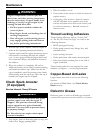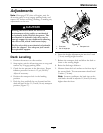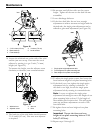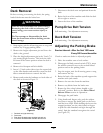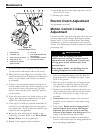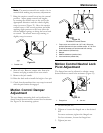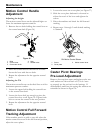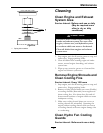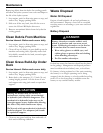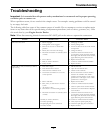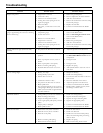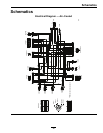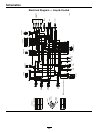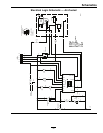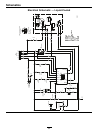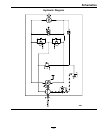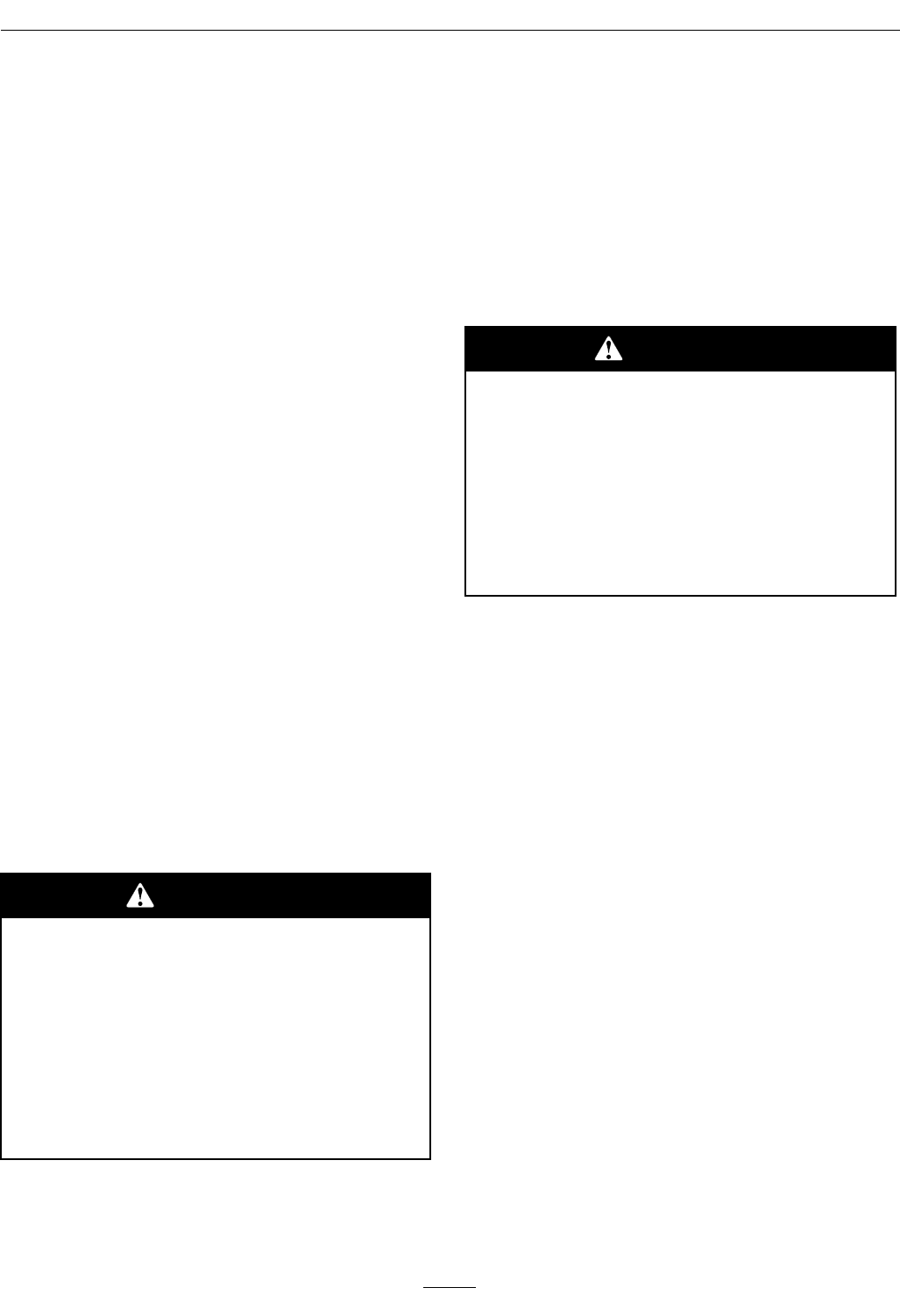
Maintenance
Removing debris from the hydro fan cooling guards
will allow the hydro system to run cooler and improve
the life of the hydro system.
1. Stop engine, wait for all moving parts to stop, and
remove key. Engage parking brake.
2. Slide seat all the way back, then lift the seat to
access the LH and RH hydro drive area.
3. Remove accumulated debris from the hydro fan
cooling guards.
Clean Debris From Machine
Service Interval: Before each use or daily
1. Stop engine, wait for all moving parts to stop, and
remove key. Engage parking brake.
2. Clean off any oil, debris, or grass build-up on the
machine and cutting deck, especially under deck
belt shields, around the fuel tank, around engine
and exhaust area.
Clean Grass Build-Up Under
Deck
Service Interval: Before each use or daily
1. Stop engine, wait for all moving parts to stop, and
remove key. Engage parking brake.
2. Raise deck to the transport (5 1/2 inch (14 cm)
cutting height) position. Lift the front of unit
and support unit using jack stands or equivalent
support.
CAUTION
Raising the mower deck for service or
maintenance relying solely on mechanical
or hydraulic jacks could be dangerous. The
mechanical or hydraulic jacks may not be
enough support or may malfunction allowing
the unit to fall, which could cause injury.
Do Not rely solely on mechanical or hydraulic
jacks for support. Use adequate jack stands
or equivalent support.
3. Clean out any grass build-up from underside of
deck and in discharge deector.
Waste Disposal
Motor Oil Disposal
Engine oil and hydraulic oil are both pollutants to
the environment. Dispose of used oil at a certied
recycling center or according to your state and local
regulations.
Battery Disposal
DANGER
Battery electrolyte contains sulfuric acid,
which is poisonous and can cause severe
burns. Swallowing electrolyte can be fatal or
if it touches skin can cause severe burns.
• Wear safety glasses to shield eyes, and
rubber gloves to protect skin and clothing
when handling electrolyte.
• Do Not swallow electrolyte.
Federal law states that batteries should not be placed
in the garbage. Management and disposal practices
must be within relevant federal, state, or local laws.
If a battery is being replaced or if the unit containing
the battery is no longer operating and is being
scrapped, take the battery to a local certied recycling
center. If no local recycling is available return the
battery to any certied battery reseller.
46



